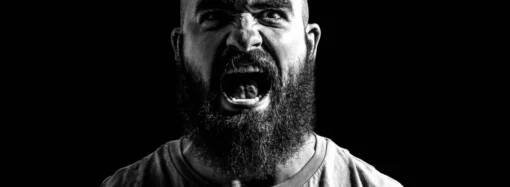Not all that long ago something called zero population growth was all the rage. But no more. The great fear was a worldwide population explosion. But no more. Certainly not in the western industrialized world. And not even in a rapidly urbanizing Muslim world.
G. K. Chesterton was many things, but he was not a demographer. Nevertheless, shouldn’t be surprised to learn that he had things to say that are of interest to today’s demographers. That’s because he had things to say to parents and to prospective parents – which is another way of saying that he had things to say to all of us.
In an essay simply titled “Our Birthday,” Chesterton turned an occasion celebrated everywhere and all the time into an occasion to make some profoundly important points. He began by reminding his readers of two things.
For starters, a birthday is an occasion for reminding ourselves – or “defiantly affirming” – that it is a good thing to be alive. Secondly, the birthday boy or girl is reminded that they are celebrating something they played no role in bringing about. This reminder is doubly important in today’s post agrarian world when children are an economic cost, or perhaps even burden, rather than an economic necessity or bonus.
Chesterton might have been charged with stating the obvious. Of course, the newborn babe played no part in his—or her—own creation. But modern thinkers have no sense of receiving things from the “real world,” including receiving things from the “past,” or from one’s “parents,” or from the “patriotic tradition,” or from the “moral philosophy of mankind.”
Instead of being thankful for the world around him, Chesterton’s “modern man” expected to BE thanked for his additions to the world. Instead of being thankful for receiving things, this same modern man seeks credit for what he has built or created or discovered, whether that might be a new structure, or a higher level of consciousness, or even a new religion.
From Chesterton’s standpoint these thinkers never seemed to grasp the idea of receiving a religion or perhaps even receiving a revelation. Instead, some among them claim to have made a religion, without ever realizing that this involves making a cosmos, or, better yet, understanding that there “already is a cosmos that has made us.”
Of course, Chesterton believed in making things, including jokes and pictures, books and toys, and farms and sacred images.
But more importantly, he believed in making homes. In fact, he saw much that was quite right about making things in one’s own home and in one’s own “workshop.” All of these homes and workshops, however, constituted “only half the world.”
It was the other half of the world that birthdays served to remind us of. That would be the world that we did not make. That would also include the world that we could not make, starting with ourselves.
Actually, Chesterton was reminded of that world on many more days than his own birthday. He was reminded of it every time he went for a walk. After all, every one of his “mental doors” opened up on a world that he knew that he had not made.
Whether walking or writing, Chesterton worried that ignoring this “other half of life” left one with a very narrow view. It was a take on life that left out “all receptivity, all inheritance, all gratitude, all worship.” Perhaps this explains why those who possess a sense of this “other half of life” have lots more children than those who lack it. The birth dearth of much of our modern world is certainly a by-product of our highly secular and highly affluent age.
In essence, it all comes down to one’s philosophy of life. For G. K. Chesterton, unless one has a philosophy that begins with the cosmos that he has inherited, one is all too likely to deny life—and to forget what birthdays should be about. Unless one’s philosophy includes all of the “actualities” that are around, then one has only “half a philosophy.”
Someone with only “half a philosophy” may well be the “wittiest man in the world,” but in a very real sense he is only “half-witted.” And very witty, half-witted people may well be so content with their pleasure-filled, child-free lives that they never stop to realize theirs is a future without a future.
—
[Image credit: Tendenci.com-Ed Schipul, CC BY 3.0]
















Leave a Comment
Your email address will not be published. Required fields are marked with *